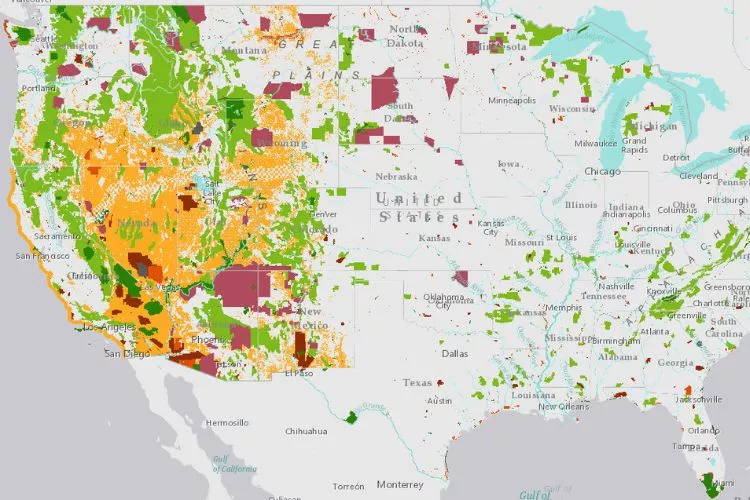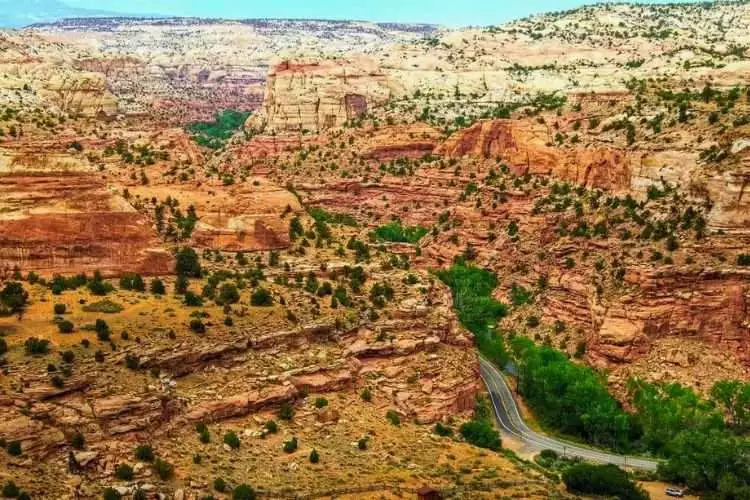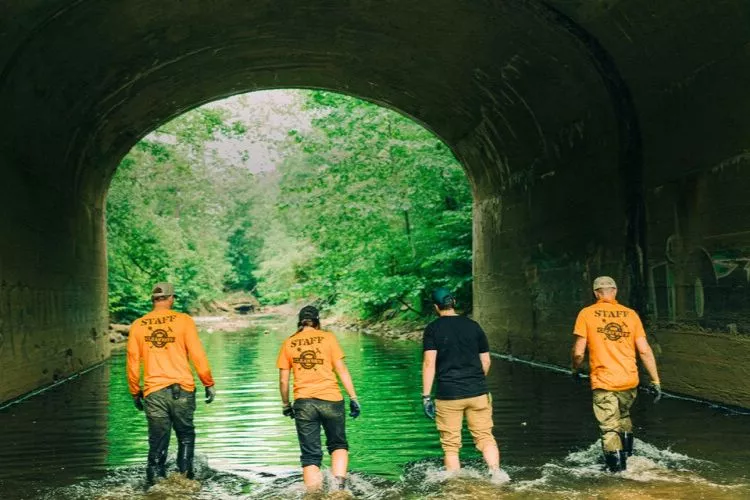Living on federal land may seem like an enticing idea for those seeking adventure, a sustainable lifestyle, or simply a way to escape the hustle and bustle of city living.
But, legally can you live on federal land for real?
Well, before you embrace this alternative living arrangement, it is crucial to understand the legalities, limitations, and essential tips associated with living on federal land.

In this article, we will explore the implications of federal land ownership, the legal considerations, and pro tips that will help you make informed decisions if you are considering this unique living experience.
Living on federal land is possible, but it generally comes with limitations and regulations. Extended stays typically require permits, and building permanent structures is generally prohibited.
The length of stay allowed can vary from 14 to 28 days, depending on the specific regulations of the federal agency managing the land.
To live on federal land, it is essential to familiarize yourself with the rules and restrictions specific to the area you are interested in and obtain any necessary permits or permissions.
What Does Federal Land Include?
Federal land encompasses a vast expanse of territories managed by different federal agencies such as the National Park Service, the Bureau of Land Management (BLM), and the U.S. Fish and Wildlife Service.
These lands include national parks, national forests, national monuments, wildlife refuges, and more. Each type of federal land has its own purpose, rules, and regulations, which dictate how the land can be used and accessed.
can you live on federal land? The Legal Considerations
Living on federal land might be an appealing prospect for those seeking a minimalistic lifestyle or those who wish to be closer to nature. However, it is imperative to understand the laws and regulations governing such arrangements.
Federal agencies have established various rules to ensure the preservation of natural resources, maintain public safety, and protect wildlife habitats. Here are some significant legal considerations to bear in mind:
Permits and Permissions: Federal land agencies typically require permits for extended stays, special activities, or alternative living arrangements such as living in a recreational vehicle (RV) or a tiny home. It is essential to familiarize yourself with the specific requirements of the agency managing the land you plan to occupy.
Length of Stay: While some federal lands have time restrictions, such as 14 to 28 days, others allow longer stays. Planning your stay accordingly and adhering to the rules specified by the agency is crucial to avoid potential fines or eviction.
Building Structures: Generally, building permanent structures on federal land is prohibited. However, some exceptions may exist, particularly for research or authorized infrastructure. Consulting with the relevant agency beforehand is vital to ensure compliance.
Challenges and Benefits of Living on Federal Land
Before embarking on a life on federal land, it is essential to consider the challenges and benefits associated with such a lifestyle.

Challenges
- Limited Amenities: Living on federal land often means you will have limited access to amenities such as electricity, water, and sewage systems. Being prepared for self-sufficiency is essential.
- Remote Locations: Federal lands are often located in remote areas, which can present challenges in terms of accessibility and proximity to essential services.
- Extreme Weather Conditions: Depending on the location, you may encounter extreme weather conditions, including high temperatures, heavy rains, or severe cold. A thorough understanding of the area’s climate is essential for preparedness.
Benefits
- Proximity to Nature: Living on federal land provides unparalleled access to stunning natural landscapes, allowing you to immerse yourself in the beauty and tranquility of the great outdoors.
- Cost Savings: Compared to traditional living arrangements, living on federal land can significantly reduce expenses such as rent or mortgages. However, it should be noted that the cost of alternative energy sources and other self-sufficiency measures should be considered.
- Sustainable Lifestyle: Federal land living can be a stepping stone towards a more sustainable lifestyle. The experience can foster a deeper connection with nature and enhance your awareness of conserving resources.
Alternatives to Living on Federal Land
While living on federal land may not be feasible or desirable for everyone, there are alternative living arrangements that offer similar benefits:
- RV Living: Recreational vehicles provide a mobile living solution that allows you to explore different areas while still having the comforts of home. However, it is essential to be aware of RV-specific regulations, such as parking restrictions and campground rules.
- Tiny Homes: Compact, eco-friendly, and cost-effective, tiny homes have gained popularity as an alternative living option. However, zoning and building regulations may limit their placement on private property or in certain areas.
- Private Wildlands: In some cases, private wildlands or conservation communities may offer a compromise between traditional living and residing on federal land. These communities often embrace principles of sustainability and communal living.
Pro Tips for Living on Federal Land
Living on federal land can be a rewarding experience if approached with the right mindset and preparedness. Here are some pro tips to help you make the most of your federal land living adventure:

- Research the Land: Thoroughly research and understand the federal land you plan to occupy. Each area has its own regulations and restrictions, so familiarize yourself with the rules specific to your chosen location.
- Practice Leave No Trace Principles: Respecting the environment is crucial when living on federal land. Follow Leave No Trace principles to minimize your impact on the land and preserve its natural beauty for future generations.
- Plan for Self-Sufficiency: Prepare for self-sufficiency by considering alternative energy sources, water storage, and waste management systems. Being self-reliant will ensure a smoother transition and enhance your overall experience.
- Engage with the Community: Embrace the opportunity to connect with fellow residents, local communities, and federal land agencies. Engaging in volunteer activities or attending community events can enrich your experience and build lasting relationships.
Frequently Asked Questions (FAQs)
Can I permanently live on federal land?
Living permanently on federal land is typically not allowed due to regulations that prioritize land preservation, public access, and environmental conservation. Stays are usually limited to a specific duration.
How long can I stay on federal land without moving?
The length of stay allowed on federal land varies depending on the managing agency and the specific regulations in place. Some areas may allow stays of up to 14 days, while others permit longer stays, often up to 28 days.
Can I build permanent structures on federal land?
In most cases, building permanent structures on federal land is prohibited. Exceptions may exist for research purposes or authorized infrastructure projects. Contacting the relevant federal land agency is essential to understand the rules and regulations specific to your chosen location.
Are there restrictions on camping or setting up camp on federal land?
Camping restrictions on federal land depend on the specific rules designated by the managing agency. Some areas may have designated camping sites, while others may require permits or have limitations on the number of consecutive nights you can camp in one location.
Can I live on BLM land?
The Bureau of Land Management (BLM) manages vast areas of federal land, including some regions where living arrangements may be allowed. However, it is crucial to research and understand the specific rules and restrictions applicable to the BLM-managed land you are interested in.
Conclusion:
Living on federal land offers a unique opportunity for those seeking an alternative living experience, connection with nature, and a sustainable lifestyle.
However, it is vital to understand the legal considerations, limitations, and necessary preparations before embarking on this journey.
By familiarizing yourself with the rules and regulations, understanding the challenges, and embracing the benefits of this lifestyle, you can make the most of your time living on federal land while preserving and respecting the natural beauty that surrounds you.


